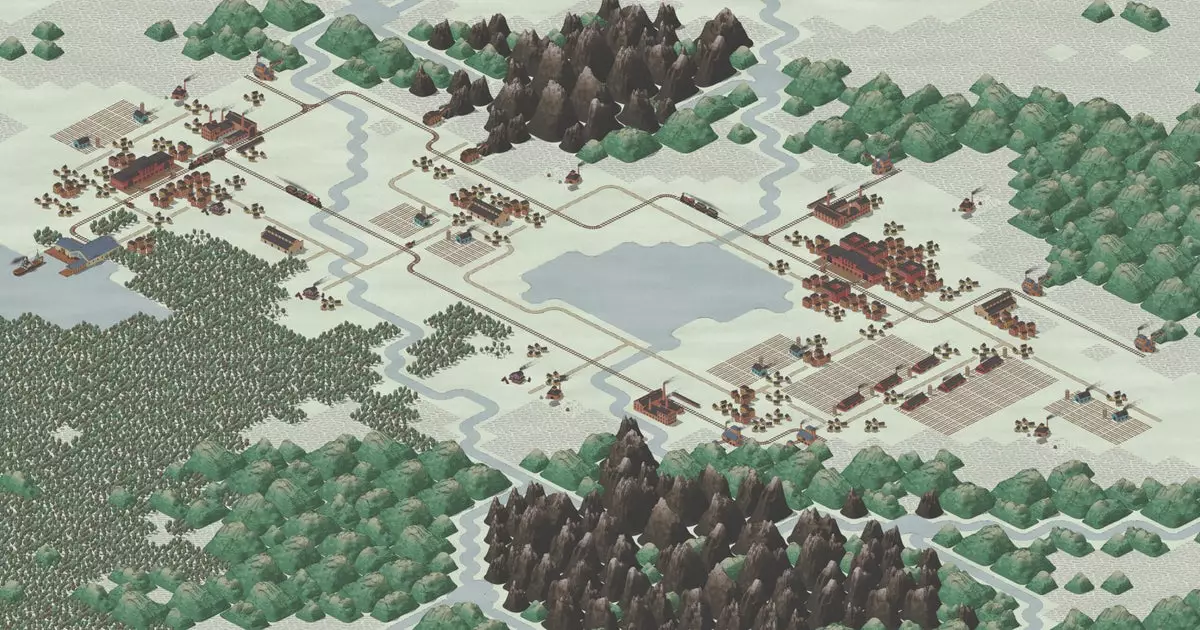For me, Times Of Progress holds a significant place in my gaming journey. This city-building simulation is not just another title; it was the first game-related news tip I received from Sin Vega, an influential figure in the strategy gaming community. Sin, who serves as the Prime Minister of Strategy Gaming, has an interesting take on writing about games, describing it as akin to training under a kung fu master. The pressure to deliver a well-articulated piece about this particular city-builder has weighed heavily on me, a feeling amplified by the thought that I might be tasked with the responsibility of orchestrating the development of a historical city like Londinium. After postponing writing about Times Of Progress due to various distractions, including conferences in the international gaming arena, it seems the time has finally come for me to delve into this intriguing title.
Setting and Presentation: The Aesthetic Appeal of Times Of Progress
The game transports players back to the thrilling days of the Industrial Revolution, a pivotal epoch characterized by groundbreaking innovations such as steam engines and trade unions. What initially captures your attention is the game’s distinctive visual charm. Set in a procedurally generated isometric world, Times Of Progress boasts an appealing design, filled with diamond-shaped town layouts connected by an intricate network of roads and railways. The color palette is inviting, depicting soft earth tones, vibrant reds, and lush greens, crafting a clean yet lively environment. Animated elements, like the rising smoke from chimneys, add a dynamic layer to the otherwise minimalist aesthetic, which can be deemed both refreshing and engaging.
However, one should note that while Times Of Progress has a more condensed feel compared to other city-builders, it is loaded with systems that deepen gameplay. The period’s choice brings about fascinating mechanics tied to technological advancements, from typewriters to water frames. The innovation process in Times Of Progress diverges from conventional methods. Players don’t merely assign tasks to scientists; rather, technology unlocks along a timeline that reflects the broader Industrial Revolution, affecting both your city and the AI-controlled ones around you. This ingenuity introduces a layer of strategy, as players earn points by accomplishing objectives to hasten their technological progress.
The Role of Trade and Labor in City Management
Trade plays a crucial role in Times Of Progress, replacing the typical military focus seen in many simulation games. As you advance, engaging with other cities primarily revolves around mercantile relations rather than cultural or military dominance. It encourages players to develop diplomatic commercial strategies, giving the game a fresh perspective on city-building dynamics. The absence of a military component shifts the focus entirely to economic growth and collaboration, setting it apart from traditional city simulators.
Another meaty aspect of gameplay is labor politics, an issue that can define the success or failure of your city. Workers have the power to strike if not compensated adequately, introducing a layer of social responsibility. This mechanic urges players to consider their positions from a humanistic viewpoint; balancing worker satisfaction against economic growth becomes paramount. Once workers unionize—an option you can facilitate by enacting relevant laws—the management dynamics change, as these educated workers might demand more while also performing their roles more effectively.
The balance that Times Of Progress strikes between the gratifying experience of constructing a miniature empire and the nuanced historical realities of the era is commendable. While I confide in the hope that Sin Vega will provide a more elaborate exploration of this title in the future, I encourage those interested in a combination of strategy and historical relevance to check out this unique offering. With a solo developer at the helm, Pressing Thumbs Games—based in the heart of Berlin—uses innovative programming techniques, ensuring a refreshing take on the genre.
Times Of Progress is a game where history and strategy intertwine beautifully, creating a rich tapestry that players can explore. It’s a testament to what indie development can achieve, and as I step back into my creative shell, I look forward to seeing how this game evolves in the hands of the gaming community. For more information, you can navigate to its Steam page and experience the Industrial Revolution like never before.


Leave a Reply